
Beijing AI Principles
Publisher: Beijing Academy of Artificial Intelligence (BAAI); Peking University; Tsinghua University; Institute of Automation, Chinese Academy of Sciences; Institute of Computing Technology, Chinese Academy of Sciences; Artifical Intelligence Industry Innovation Strategy Alliance (AITISA); etc.
Type of Publisher: Academia, Non-profits and Non-Governmental Organizations
Country of Region: China
Abbreviation: Beijing 2019
Date of Publication: May 25, 2019
List of Content:

Asilomar AI Principles
Publisher: Future of Life Institute (FLI), Beneficial AI 2017
Type of Publisher: Academia, Non-profits and Non-Governmental Organizations
Country of Region: United States
Abbreviation: FLI 2017
Date of Publication: Jan 3-8, 2017
List of Content:

Governance Principles for the New Generation Artificial Intelligence--Developing Responsible Artificial Intelligence
Publisher: National Governance Committee for the New Generation Artificial Intelligence, China
Type of Publisher: Governments and Intergovernmental Organizations
Country of Region: China
Abbreviation: NGCNGAI 2019
Date of Publication: Jun 17, 2019

Dubai's AI Principles
Publisher: Smart Dubai
Type of Publisher: Governments and Intergovernmental Organizations
Country of Region: United Arab Emirates
Abbreviation: Smart Dubai 2019
Date of Publication: Jan 08, 2019
List of Content:

Joint Pledge on Artificial Intelligence Industry Self-Discipline (Draft for Comment)
Publisher: Artificial Intelligence Industry Alliance (AIIA), China
Type of Publisher: Industry
Country of Region: China
Abbreviation: AIIA 2019
Date of Publication: May 31, 2019
List of Content:

Recommendations for reliable artificial intelligence
Publisher: OFFICE OF THE CHIEF OF MINISTERS UNDERSECRETARY OF INFORMATION TECHNOLOGIES
Type of Publisher: Governments and Intergovernmental Organizations
Country of Region: Argentina
Abbreviation: Argentina 2023
Date of Publication: Jnue 2, 2023
List of Content:

Artificial Intelligence for Children: Beijing Principles
Publisher: Beijing Academy of Artificial Intelligence (BAAI), Peking University, Tsinghua University and the Chinese Academy of Sciences, together with enterprises that focus on AI development.
Type of Publisher: Academia, Non-profits and Non-Governmental Organizations;Industry
Country of Region: China
Abbreviation: Beijing Children 2020
Date of Publication: Sep 14, 2020
List of Content:

Social Principles of Human-centric AI
Publisher: Cabinet Office, Government of Japan
Type of Publisher: Governments and Intergovernmental Organizations
Country of Region: Japan
Abbreviation: Cabinet Office 2018
Date of Publication: Dec 27, 2018

Global AI Governance Initiative
Publisher: Cyberspace Administration of China
Type of Publisher: Governments and Intergovernmental Organizations
Country of Region: China
Abbreviation: China Global 2023
Date of Publication: October 18, 2023
List of Content:

Ethical principles and democratic prerequisites
Publisher: European Group on Ethics in Science and New Technologies, European Commission
Type of Publisher: Governments and Intergovernmental Organizations
Country of Region: Europe
Abbreviation: EGE 2018
Date of Publication: Mar 9, 2018

G20 AI Principles
Publisher: G20 Ministerial Meeting on Trade and Digital Economy
Type of Publisher: Governments and Intergovernmental Organizations
Country of Region: International
Abbreviation: G20 2019
Date of Publication: Jun 09, 2019
List of Content:

Artificial Intelligence at Google: Our Principles
Publisher: Google
Type of Publisher: Industry
Country of Region: United States
Abbreviation: Google 2018
Date of Publication: Jun 7, 2018
List of Content:

AI Policy Principles
Publisher: Information Technology Industry Council (ITI)
Type of Publisher: Academia, Non-profits and Non-Governmental Organizations
Country of Region: United States
Abbreviation: ITI 2017
Date of Publication: Oct 24, 2017
List of Content:

Guiding Principles and Recommendations
Publisher: Internet Society, "Artificial Intelligence and Machine Learning: Policy Paper"
Type of Publisher: Academia, Non-profits and Non-Governmental Organizations
Country of Region: United States
Abbreviation: Internet Society 2017
Date of Publication: Apr 18, 2017

AI R&D Principles
Publisher: Ministry of Internal Affairs and Communications (MIC), the Government of Japan
Type of Publisher: Governments and Intergovernmental Organizations
Country of Region: Japan
Abbreviation: MIC 2017
Date of Publication: Jul 28, 2017

Draft AI Utilization Principles
Publisher: Ministry of Internal Affairs and Communications (MIC), the Government of Japan
Type of Publisher: Governments and Intergovernmental Organizations
Country of Region: Japan
Abbreviation: MIC 2018
Date of Publication: Jul 17, 2018
List of Content:

The Montreal Declaration for a Responsible Development of Artificial Intelligence
Publisher: University of Montreal
Type of Publisher: Academia, Non-profits and Non-Governmental Organizations
Country of Region: Canada
Abbreviation: Montreal 2018
Date of Publication: Dec 4, 2018
List of Content:

Ethical Norms for the New Generation Artificial Intelligence
Publisher: National Governance Committee for the New Generation Artificial Intelligence, China
Type of Publisher: Governments and Intergovernmental Organizations
Country of Region: China
Abbreviation: NGCNGAI 2021
Date of Publication: Sep 25, 2021

10 AI rules
Publisher: Satya Nadella, CEO of Microsoft
Type of Publisher: Industry
Country of Region: United States
Abbreviation: Nadella 2016
Date of Publication: Jun 28, 2016
List of Content:

OECD Principles on Artificial Intelligence
Publisher: The Organisation for Economic Co-operation and Development (OECD)
Type of Publisher: Governments and Intergovernmental Organizations
Country of Region: International
Abbreviation: OECD 2019
Date of Publication: May 22, 2019
List of Content:

Principles for Ethical Use of AI [Beta]
Publisher: Government of Ontario, Canada
Type of Publisher: Governments and Intergovernmental Organizations
Country of Region: Canada
Abbreviation: Ontario 2023
Date of Publication: Sept 14, 2023

Artificial Intelligence Code of Ethics
Publisher: AI Alliance Russia
Type of Publisher: Governments and Intergovernmental Organizations
Country of Region: Russia
Abbreviation: Russia 2021
Date of Publication: Oct 26, 2021
List of Content:

AI Ethics Code (revised version)
Publisher: AI Alliance Russia
Type of Publisher: Governments and Intergovernmental Organizations
Country of Region: Russia
Abbreviation: Russia 2022
Date of Publication: Oct 21, 2022 (unconfirmed)
List of Content:

Shanghai Initiative for the Safe Development of Artificial Intelligence
Publisher: Shanghai Advisory Committee of Experts on Artificial Intelligence Industry Security
Type of Publisher: Academia, Non-profits and Non-Governmental Organizations
Country of Region: China
Abbreviation: SHAIISEAC 2019
Date of Publication: Aug 30, 2019

AI Ethics Principles
Publisher: SDAIA
Type of Publisher: Government
Country of Region: Saudi Arab
Abbreviation: Saudi Arab 2022
Date of Publication: Sept 14, 2022
List of Content:

Telia Company Guiding Principles on trusted AI ethics
Publisher: Telia Company AB
Type of Publisher: Industry
Country of Region: Sweden
Abbreviation: Telia 2019
Date of Publication: Jan 22, 2019

Ethical Principles for AI in Defence
Publisher: The Ministry of Defence (MOD), United Kingdom
Type of Publisher: Governments and Intergovernmental Organizations
Country of Region: United Kingdom
Abbreviation: UK MOD 2022
Date of Publication: Jun 15, 2022

The Recommendation on the Ethics of Artificial Intelligence
Publisher: The United Nations Educational, Scientific and Cultural Organization (UNESCO)
Type of Publisher: Governments and Intergovernmental Organizations
Country of Region: International
Abbreviation: UNESCO 2021
Date of Publication: Nov 24, 2021
List of Content:

Requirements for child-centred AI
Publisher: United Nations Children's Fund (UNICEF) and the Ministry of
Type of Publisher: Governments and Intergovernmental Organizations
Country of Region: International
Abbreviation: UNICEF 2020
Date of Publication: Sep 16, 2020
List of Content:

Key ethical principles for use of artificial intelligence for health
Publisher: World Health Organization (WHO)
Type of Publisher: Governments and Intergovernmental Organizations
Country of Region: International
Abbreviation: WHO 2021
Date of Publication: Jun 28, 2021
List of Content:
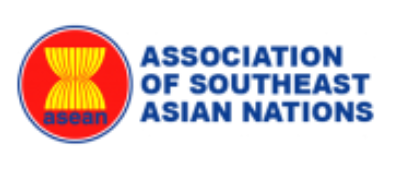
ASEAN Guide on AI Governance and Ethics
Publisher: ASEAN
Type of Publisher: Governments and Intergovernmental Organizations
Country of Region: ASEAN
Abbreviation: ASEAN 2024
Date of Publication: 2024

AI Ethics Principles
Publisher: Department of Industry, Innovation and Science, Australian Government
Type of Publisher: Governments and Intergovernmental Organizations
Country of Region: Australia
Abbreviation: Australia 2019
Date of Publication: Nov 7, 2019

Deutsche Telekom’s guidelines for artificial intelligence
Publisher: Deutsche Telekom
Type of Publisher: Industry
Country of Region: Germany
Abbreviation: Deutsche Telekom 2018
Date of Publication: May 11, 2018

Key requirements for trustworthy AI
Publisher: European Commission
Type of Publisher: Governments and Intergovernmental Organizations
Country of Region: Europe
Abbreviation: EC 2019
Date of Publication: Apr 8, 2019

Harmonious Artificial Intelligence Principles (HAIP)
Publisher: HAIP Initiative
Type of Publisher: Academia, Non-profits and Non-Governmental Organizations
Country of Region: China
Abbreviation: HAIP 2018
Date of Publication: Sep 16, 2018
List of Content:

Draft Ethics Guidelines for Trustworthy AI
Publisher: The European Commission’s High-Level Expert Group on Artificial Intelligence
Type of Publisher: Governments and Intergovernmental Organizations
Country of Region: Europe
Abbreviation: HLEG 2018
Date of Publication: Dec 18, 2018
List of Content:

Declaration On Ethics And Data Protection In Artifical Intelligence
Publisher: 40th International Conference of Data Protection and Privacy Commissioners (ICDPPC)
Type of Publisher: Academia, Non-profits and Non-Governmental Organizations
Country of Region: International
Abbreviation: ICDPPC 2018
Date of Publication: Oct 23, 2018
List of Content:

IDAIS-Venice
Publisher: IDAIS (International Dialogues on AI Safety)
Type of Publisher: Academia, Non-profits and Non-Governmental Organizations
Country of Region: International
Abbreviation: IDAIS 2024b
Date of Publication: Sept 5, 2024
List of Content:

Ethically Aligned Design (v2): General Principles
Publisher: The IEEE Global Initiative on Ethics of Autonomous and Intelligent Systems
Type of Publisher: Academia, Non-profits and Non-Governmental Organizations
Country of Region: International
Abbreviation: IEEE 2017
Date of Publication: (v1) Dec 13, 2016. (v2) Dec 12, 2017

AI public policy principles
Publisher: Intel
Type of Publisher: Industry
Country of Region: United States
Abbreviation: Intel 2017
Date of Publication: Oct 18, 2017

The Japanese Society for Artificial Intelligence Ethical Guidelines
Publisher: The Japanese Society for Artificial Intelligence (JSAI)
Type of Publisher: Academia, Non-profits and Non-Governmental Organizations
Country of Region: Japan
Abbreviation: JSAI 2017
Date of Publication: Feb 28, 2017
List of Content:

The Montreal Declaration for a Responsible Development of Artificial Intelligence
Publisher: University of Montreal, Forum on the Socially Responsible Development of AI
Type of Publisher: Academia, Non-profits and Non-Governmental Organizations
Country of Region: Canada
Abbreviation: Montreal 2017
Date of Publication: Nov 3, 2017
List of Content:

AI Ethical Principles
Publisher: Rebelliondefense
Type of Publisher: Industry
Country of Region: United States
Abbreviation: Rebelliondefense 2023
Date of Publication: January 2023
List of Content:

Chinese Young Scientists’ Declaration on the Governance and Innovation of Artificial Intelligence
Publisher: Youth Work Committee of Shanghai Computer Society
Type of Publisher: Academia, Non-profits and Non-Governmental Organizations
Country of Region: China
Abbreviation: Shanghai YoungAI 2019
Date of Publication: Aug 29, 2019
List of Content:

Sony Group AI Ethics Guidelines
Publisher: Sony Group
Type of Publisher: Industry
Country of Region: Japan
Abbreviation: Sony 2018
Date of Publication: Sep 25, 2018
List of Content:

"ARCC": An Ethical Framework for Artificial Intelligence
Publisher: Tencent Research Institute
Type of Publisher: Industry
Country of Region: China
Abbreviation: Tencent 2018
Date of Publication: Sep 18, 2018
List of Content:

Six AI Principles proposed by Mme Fu Ying
Publisher: Center for International Strategy and Security, Tsinghua University (Tsinghua CISS)
Type of Publisher: Academia, Non-profits and Non-Governmental Organizations
Country of Region: China
Abbreviation: Tsinghua CISS 2019
Date of Publication: Jan 23, 2019
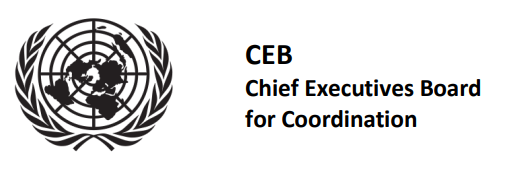
Principles for the Ethical Use of Artificial Intelligence in the United Nations System
Publisher: United Nations System Chief Executives Board for Coordination
Type of Publisher: Governments and Intergovernmental Organizations
Country of Region: International
Abbreviation: UNCEB 2022
Date of Publication: Sept 20, 2022
List of Content:

Top 10 Principles For Ethical Artificial Intelligence
Publisher: UNI Global Union
Type of Publisher: Academia, Non-profits and Non-Governmental Organizations
Country of Region: International
Abbreviation: UNI Global Union 2017
Date of Publication: Dec 11, 2017
List of Content:

Principles of Artificial Intelligence Ethics for the Intelligence Community
Publisher: Intelligence Community (IC), United States
Type of Publisher: Governments and Intergovernmental Organizations
Country of Region: United States
Abbreviation: US IC 2020
Date of Publication: Jul 23, 2020

Principles for the Stewardship of AI Applications
Publisher: The White House Office of Science and Technology Policy (OSTP), United States
Type of Publisher: Governments and Intergovernmental Organizations
Country of Region: United States
Abbreviation: US OSTP 2020
Date of Publication: Nov 17, 2020

Principles for the Stewardship of AI Applications
Publisher: The White House Office of Science and Technology Policy (OSTP), United States
Type of Publisher: Governments and Intergovernmental Organizations
Country of Region: United States
Abbreviation: US OSTP 2020
Date of Publication: Nov 17, 2020

The FAST Track Principles
Publisher: The Alan Turing Institute
Type of Publisher: Academia, Non-profits and Non-Governmental Organizations
Country of Region: United Kingdom
Abbreviation: Alan Turing Inst 2019
Date of Publication: Jun 10, 2019
List of Content:

Trustworthy AI in Aotearoa: The AI Principles
Publisher: the Law, Society and Ethics Working Group of the AI Forum,New Zealand
Type of Publisher: Academia, Non-profits and Non-Governmental Organizations
Country of Region: New Zealand
Abbreviation: Aotearoa 2020
Date of Publication: Mar 4, 2020
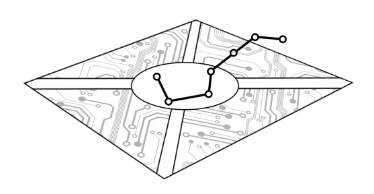
Principles on Artificial Intelligence for Biodiversity Conservation
Publisher: International Research Center for AI Ethics and Governance, Instituteof Automation, Chinese Academy of Sciences,World Animal Protection Beijing Representative Office and other 7 entities
Type of Publisher: Academia, Non-profits and Non-Governmental Organizations
Country of Region: China
Abbreviation: Biodiversity 2022
Date of Publication: August 25, 2022

Toward a G20 Framework for Artificial Intelligence in the Workplace
Publisher: Centre for International Governance Innovation (CIGI), Canada
Type of Publisher: Academia, Non-profits and Non-Governmental Organizations
Country of Region: Canada
Abbreviation: CIGI 2018
Date of Publication: Jul 19, 2018
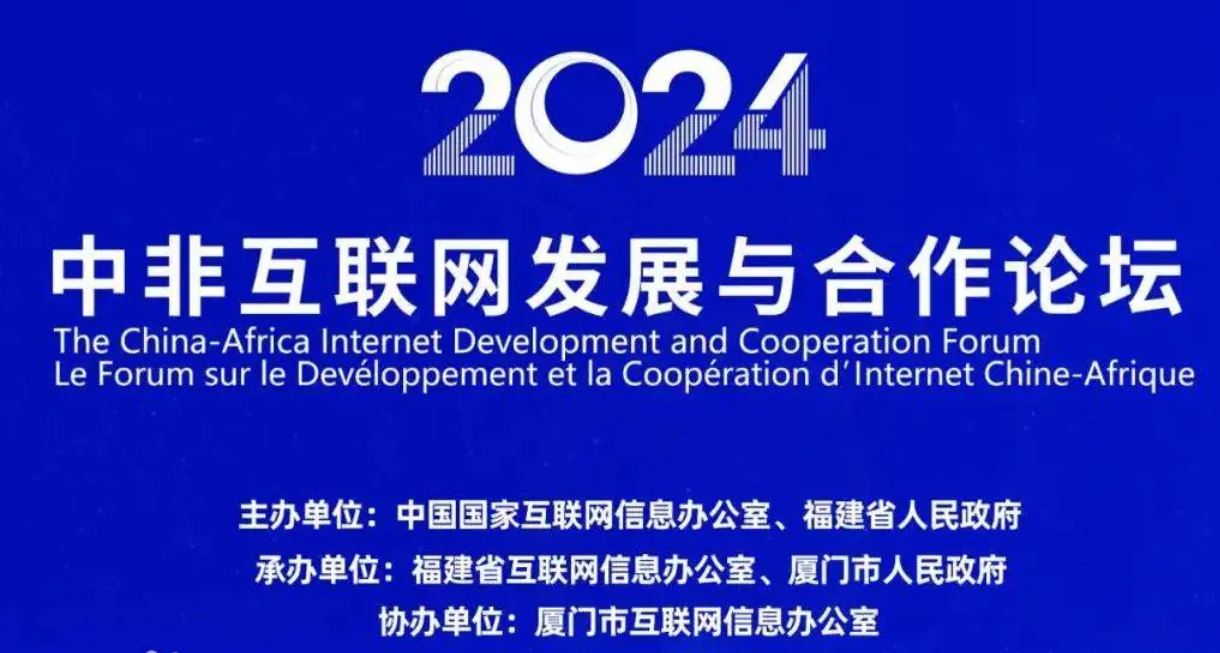
2024 China Africa Internet Development and Cooperation Forum President's Statement on China Africa Artificial Intelligence Cooperation
Publisher: China Africa Internet Development and Cooperation Forum
Type of Publisher: Governments and Intergovernmental Organizations
Country of Region: China
Abbreviation: China Africa 2024
Date of Publication: March 3, 2024
List of Content:

AI Ethics Principles for DoD
Publisher: Defense Innovation Board (DIB), Department of Defense (DoD), United States
Type of Publisher: Governments and Intergovernmental Organizations
Country of Region: United States
Abbreviation: DoDDIB 2019
Date of Publication: Oct 31, 2019
List of Content:

AI Code
Publisher: House of Lords of United Kingdom, Select Committee on Artificial Intelligence
Type of Publisher: Governments and Intergovernmental Organizations
Country of Region: United Kingdom
Abbreviation: House of Lords 2018
Date of Publication: Apr 16, 2018
List of Content:
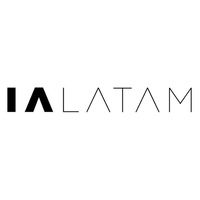
Declaration Of Ethics For The Development And Use Of Artificial Intelligence (unofficial translation)
Publisher: IA Latam
Type of Publisher: Academia, Non-profits and Non-Governmental Organizations
Country of Region: International
Abbreviation: IA Latam 2019
Date of Publication: Feb 8, 2019 (unconfirmed)
List of Content:

IDAIS-Oxford
Publisher: IDAIS (International Dialogues on AI Safety)
Type of Publisher: Academia, Non-profits and Non-Governmental Organizations
Country of Region: International
Abbreviation: IDAIS 2023
Date of Publication: Oct 31, 2023
List of Content:

IDAIS-Beijing
Publisher: IDAIS (International Dialogues on AI Safety)
Type of Publisher: Academia, Non-profits and Non-Governmental Organizations
Country of Region: International
Abbreviation: IDAIS 2024
Date of Publication: May 10, 2024
List of Content:

Artificial Intelligence Application Criteria
Publisher: Megvii
Type of Publisher: Industry
Country of Region: China
Abbreviation: Megvii 2019
Date of Publication: Jul 8, 2019

Recommendations for the treatment of personal data derived from the use of Artificial Intelligence
Publisher: National Institute of Transparency, Access to Information and Protection of Personal Data (INAI)
Type of Publisher: Governments and Intergovernmental Organizations
Country of Region: Mexico
Abbreviation: Mexico 2022
Date of Publication: May 8, 2022
List of Content:

Mandatory Ethical Principles for the use of AI
Publisher: Government of New South Welsh, Australia
Type of Publisher: Governments and Intergovernmental Organizations
Country of Region: Australia
Abbreviation: NSW 2024
Date of Publication: 2024
List of Content:

A compilation of existing AI ethical principles (Annex A)
Publisher: Personal Data Protection Commission (PDPC), Singapore
Type of Publisher: Governments and Intergovernmental Organizations
Country of Region: Singapore
Abbreviation: PDPC Compilation 2020
Date of Publication: Jan 21, 2020

SAP's Guiding Principles for Artificial Intelligence
Publisher: SAP
Type of Publisher: Industry
Country of Region: Germany
Abbreviation: SAP 2018
Date of Publication: Sep 18, 2018
List of Content:

ETHICAL GUIDELINES FOR THE DEVELOPMENT, APPLICATION AND USE OF RELIABLE AND RESPONSIBLE ARTIFICIAL INTELLIGENCE
Publisher: Republic of Serbia
Type of Publisher: Governments and Intergovernmental Organizations
Country of Region: Serbia
Abbreviation: Serbia 2023
Date of Publication: Febrary, 2023

National AI Ethical Guidelines
Publisher: The Ministry of Science and ICT (MSIT) and the Korea Information Society Development Institute (KISDI)
Type of Publisher: Governments and Intergovernmental Organizations
Country of Region: South Korea
Abbreviation: South Korea 2020b
Date of Publication: Dec 23, 2020
List of Content:

AI Principles of Telefónica
Publisher: Telefónica
Type of Publisher: Industry
Country of Region: Spain
Abbreviation: Telefonica 2018
Date of Publication: Oct 30, 2018

Universal Guidelines for Artificial Intelligence
Publisher: The Public Voice coalition, established by Electronic Privacy Information Center (EPIC)
Type of Publisher: Academia, Non-profits and Non-Governmental Organizations
Country of Region: United States
Abbreviation: The Public Voice 2018
Date of Publication: Oct 23, 2018
List of Content:

Tieto’s AI ethics guidelines
Publisher: Tieto
Type of Publisher: Industry
Country of Region: Finland
Abbreviation: Tieto 2018
Date of Publication: Oct 17, 2018
List of Content:

Universal Guidelines for AI
Publisher: Center for AI and Digital Policy
Type of Publisher: Academia, Non-profits and Non-Governmental Organizations
Country of Region: United States
Abbreviation: CAIDP 2018
Date of Publication: Oct, 2018
List of Content:

Suggested generic principles for the development, implementation and use of AI
Publisher: The Extended Working Group on Ethics of Artificial Intelligence (AI) of the World Commission on the Ethics of Scientific Knowledge and Technology (COMEST), UNESCO
Type of Publisher: Governments and Intergovernmental Organizations
Country of Region: International
Abbreviation: COMEST 2019
Date of Publication: Mar 21, 2019

Joint Statement between the People's Republic of China and the French Republic on Artificial Intelligence and Global Governance
Publisher: China Government
Type of Publisher: Governments and Intergovernmental Organizations
Country of Region: China
Abbreviation: China France 2024
Date of Publication: May 7, 2024
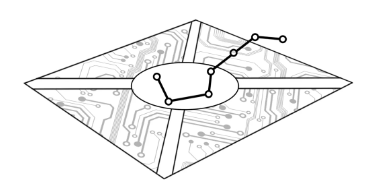
Principles on AI for Climate Action
Publisher: International Research Center for AI Ethics and Governance, Instituteof Automation, Chinese Academy of Sciences and other 10 entities
Type of Publisher: Academia, Non-profits and Non-Governmental Organizations
Country of Region: China
Abbreviation: Climate Action 2022
Date of Publication: April 26, 2022
List of Content:

DeepMind Ethics & Society Principles
Publisher: DeepMind
Type of Publisher: Industry
Country of Region: United Kingdom
Abbreviation: DeepMind 2017
Date of Publication: Oct 3, 2017 (unconfirmed)

Opinion of the Data Ethics Commission: General ethical and legal principles
Publisher: Data Ethics Commission, Germany
Type of Publisher: Governments and Intergovernmental Organizations
Country of Region: Germany
Abbreviation: GER DEC 2019
Date of Publication: Oct 10, 2019
List of Content:

The Eight Principles of Responsible AI
Publisher: International Technology Law Association (ITechLaw)
Type of Publisher: Academia, Non-profits and Non-Governmental Organizations
Country of Region: International
Abbreviation: ITechLaw 2019
Date of Publication: May 23, 2019

Microsoft AI Principles
Publisher: Microsoft
Type of Publisher: Industry
Country of Region: United States
Abbreviation: Microsoft 2018
Date of Publication: Jan 17, 2018 (unconfirmed)
List of Content:

NATO Principles of Responsible Use of Artificial Intelligence in Defence
Publisher: The North Atlantic Treaty Organization (NATO)
Type of Publisher: Governments and Intergovernmental Organizations
Country of Region: International
Abbreviation: NATO 2021
Date of Publication: Oct 22, 2021

OpenAI Charter
Publisher: OpenAI
Type of Publisher: Industry
Country of Region: United States
Abbreviation: OpenAI 2018
Date of Publication: Apr 9, 2018

Partnership on AI: Tenets
Publisher: Partnership on AI
Type of Publisher: Academia, Non-profits and Non-Governmental Organizations
Country of Region: United States
Abbreviation: PAI 2016
Date of Publication: Sep 28, 2016 (unconfirmed)
List of Content:

Rome Call for AI Ethics
Publisher: The Pontifical Academy for Life, Microsoft, IBM, FAO, the Italia Government
Type of Publisher: Governments and Intergovernmental Organizations
Country of Region: International
Abbreviation: Rome Call 2020
Date of Publication: Feb 28, 2020

Principles for AI Ethics
Publisher: Samsung
Type of Publisher: Industry
Country of Region: South Korea
Abbreviation: Samsung 2019
Date of Publication: Apr 24, 2019 (unconfirmed)
List of Content:

Data and AI ethics principles
Publisher: Thomson Reuters
Type of Publisher: Industry
Country of Region: Canada
Abbreviation: Thomson Reuters 2023
Date of Publication: 2023
List of Content:

DoD's AI ethical principles
Publisher: Department of Defense (DoD), United States
Type of Publisher: Governments and Intergovernmental Organizations
Country of Region: United States
Abbreviation: US DoD 2020
Date of Publication: Feb 24, 2020
List of Content:

Vodafone's AI Framework
Publisher: Vodafone Group
Type of Publisher: Industry
Country of Region: United Kingdom
Abbreviation: Vodafone 2019
Date of Publication: Jun 11, 2019

ADP: Ethics in Artificial Intelligence
Publisher: ADP
Type of Publisher: Industry
Country of Region: United States
Abbreviation: ADP 2018
Date of Publication: 2018 (unconfirmed)

Responsible use of artificial intelligence (AI): Our guiding principles
Publisher: Government of Canada
Type of Publisher: Governments and Intergovernmental Organizations
Country of Region: Canada
Abbreviation: Canada 2019
Date of Publication: 2019 (unconfirmed)
List of Content:

Principles for Accountable Algorithms
Publisher: Fairness, Accountability, and Transparency in Machine Learning (FAT/ML)
Type of Publisher: Academia, Non-profits and Non-Governmental Organizations
Country of Region: International
Abbreviation: FATML 2016
Date of Publication: Jul 22, 2016 (unconfirmed)
List of Content:

IBE interactive framework of fundamental values and principles for the use of Artificial Intelligence (AI) in business
Publisher: Institute of Business Ethics (IBE)
Type of Publisher: Academia, Non-profits and Non-Governmental Organizations
Country of Region: United Kingdom
Abbreviation: IBE 2018
Date of Publication: Jan 11, 2018

Ethical Aspects of Autonomous and Intelligent Systems
Publisher: IEEE
Type of Publisher: Academia, Non-profits and Non-Governmental Organizations
Country of Region: International
Abbreviation: IEEE 2019
Date of Publication: Jun 24, 2019

Ethical guidelines on use of artificial intelligence (AI) in Indonesia
Publisher: Ministry of Communication and Informatics
Type of Publisher: Governments and Intergovernmental Organizations
Country of Region: Indonesia
Abbreviation: Indonesia 2023
Date of Publication: Febrary 12, 2024
List of Content:

Seeking Ground Rules for A.I.: The Recommendations
Publisher: New Work Summit, hosted by The New York Times
Type of Publisher: Academia, Non-profits and Non-Governmental Organizations
Country of Region: United States
Abbreviation: NYTimes 2019
Date of Publication: Mar 1, 2019

National AI Ethical Guidelines (draft)
Publisher: The Ministry of Science and ICT (MSIT) and the Korea Information Society Development Institute (KISDI)
Type of Publisher: Governments and Intergovernmental Organizations
Country of Region: South Korea
Abbreviation: South Korea 2020
Date of Publication: Nov 27, 2020
List of Content:

Seven principles on the use of AI systems in government
Publisher: The Treasury Board Secretariat of Canada (TBS)
Type of Publisher: Governments and Intergovernmental Organizations
Country of Region: Canada
Abbreviation: TBS Canada 2018
Date of Publication: Jun 28, 2018 (unconfirmed)
List of Content:

Principles for the Governance of AI
Publisher: The Future Society, Science, Law and Society (SLS) Initiative
Type of Publisher: Academia, Non-profits and Non-Governmental Organizations
Country of Region: United States
Abbreviation: The Future Society 2017
Date of Publication: Oct 3, 2017 (unconfirmed)
List of Content:

Principles for Algorithmic Transparency and Accountability
Publisher: ACM US Public Policy Council (USACM)
Type of Publisher: Academia, Non-profits and Non-Governmental Organizations
Country of Region: United States
Abbreviation: USACM 2017
Date of Publication: Jan 12, 2017

Unity’s Guiding Principles for Ethical AI
Publisher: Unity Technologies
Type of Publisher: Industry
Country of Region: United States
Abbreviation: Unity 2018
Date of Publication: Nov 28, 2018
List of Content:

AI Ethics Principles
Publisher: Adobe
Type of Publisher: Industry
Country of Region: United States
Abbreviation: Adobe 2021
Date of Publication: Feb 17, 2021
List of Content:

GE Healthcare AI principles
Publisher: GE Healthcare
Type of Publisher: Industry
Country of Region: United States
Abbreviation: GE Healthcare 2018
Date of Publication: Oct 1, 2018 (unconfirmed)
List of Content:

Principles for the Cognitive Era
Publisher: IBM
Type of Publisher: Industry
Country of Region: United States
Abbreviation: IBM 2017
Date of Publication: Jan 17, 2017
List of Content:
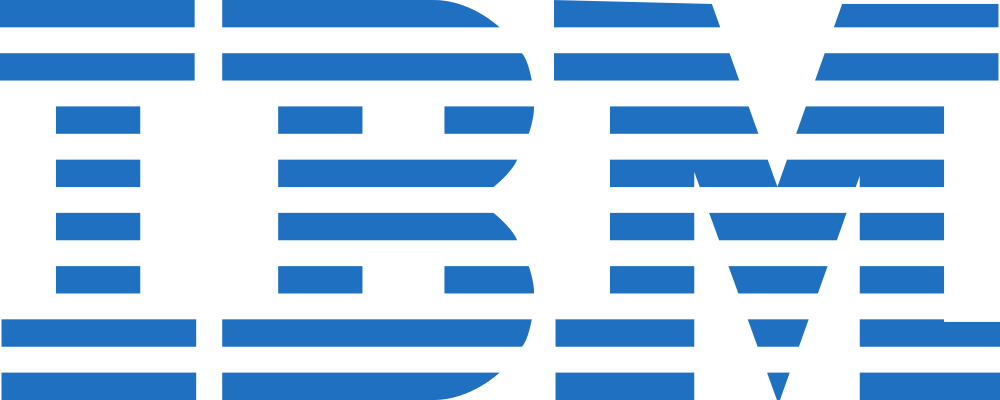
Principles for Trust and Transparency
Publisher: IBM
Type of Publisher: Industry
Country of Region: United States
Abbreviation: IBM 2018a
Date of Publication: May 30, 2018

Everyday Ethics for Artificial Intelligence: Five Areas of Ethical Focus
Publisher: IBM
Type of Publisher: Industry
Country of Region: United States
Abbreviation: IBM 2018b
Date of Publication: Sep 6, 2018

A Proposed Model AI Governance Framework: Guiding Principles
Publisher: Personal Data Protection Commission (PDPC), Singapore
Type of Publisher: Governments and Intergovernmental Organizations
Country of Region: Singapore
Abbreviation: PDPC 2019
Date of Publication: Jan 23, 2019

Principles for the Development of Use of Artificial Intelligence
Publisher: THE PRESIDENT OF THE REPUBLIC and THE CONGRESS OF THE REPUBLIC
Type of Publisher: Governments and Intergovernmental Organizations
Country of Region: Peru
Abbreviation: Peru 2023
Date of Publication: July 5, 2023

Basic Principles of the Development and Use of Artificial Intelligence Technologies
Publisher: Office of the President of the Russian Federation, Decree of the President of the Russian Federation on the Development of Artificial Intelligence in the Russian Federation
Type of Publisher: Governments and Intergovernmental Organizations
Country of Region: Russia
Abbreviation: Russia 2019
Date of Publication: Oct 10, 2019
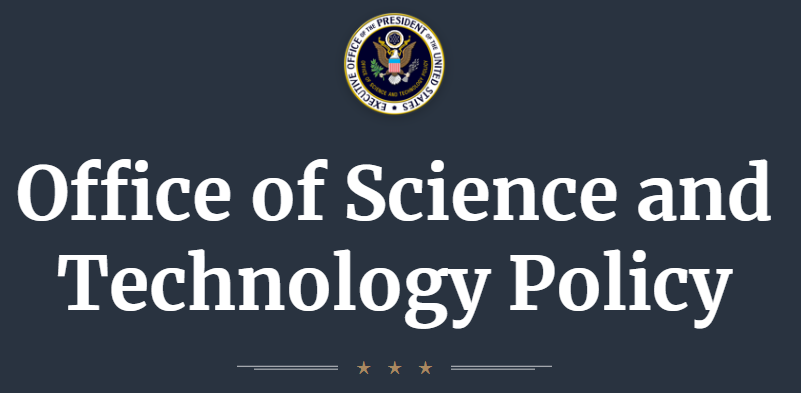
Blueprint for an AI Bill of Rights: A Vision for Protecting Our Civil Rights in the Algorithmic Age
Publisher: OSTP
Type of Publisher: Governments and Intergovernmental Organizations
Country of Region: United States
Abbreviation: US OSTP 2022
Date of Publication: Oct 4, 2022

Four principles of AI ethics
Publisher: Robin Li, co-founder and CEO of Baidu
Type of Publisher: Industry
Country of Region: China
Abbreviation: Baidu 2018
Date of Publication: May 26, 2018
List of Content:

OP Financial Group’s ethical guidelines for artificial intelligence
Publisher: OP Financial Group
Type of Publisher: Industry
Country of Region: Finland
Abbreviation: OP Financial 2018
Date of Publication: 2018 (unconfirmed)

The Ethics of Code: Developing AI for Business with Five Core Principles
Publisher: Sage
Type of Publisher: Industry
Country of Region: United Kingdom
Abbreviation: Sage 2017
Date of Publication: Jun 27, 2017

Five guiding principles of American AI Initiative
Publisher: The White House, United States
Type of Publisher: Governments and Intergovernmental Organizations
Country of Region: United States
Abbreviation: US AI Initiative 2019
Date of Publication: Feb 11, 2019
List of Content:

Three Rules for Artificial Intelligence Systems
Publisher: Oren Etzioni, CEO of Allen Institute for Artificial Intelligence
Type of Publisher: Academia, Non-profits and Non-Governmental Organizations
Country of Region: United States
Abbreviation: Etzioni 2017
Date of Publication: Sep 1, 2017
List of Content:

The Stanford Human-Centered AI Initiative (HAI)
Publisher: Stanford University
Type of Publisher: Academia, Non-profits and Non-Governmental Organizations
Country of Region: United States
Abbreviation: Stanford 2018
Date of Publication: Oct 19, 2018
List of Content: